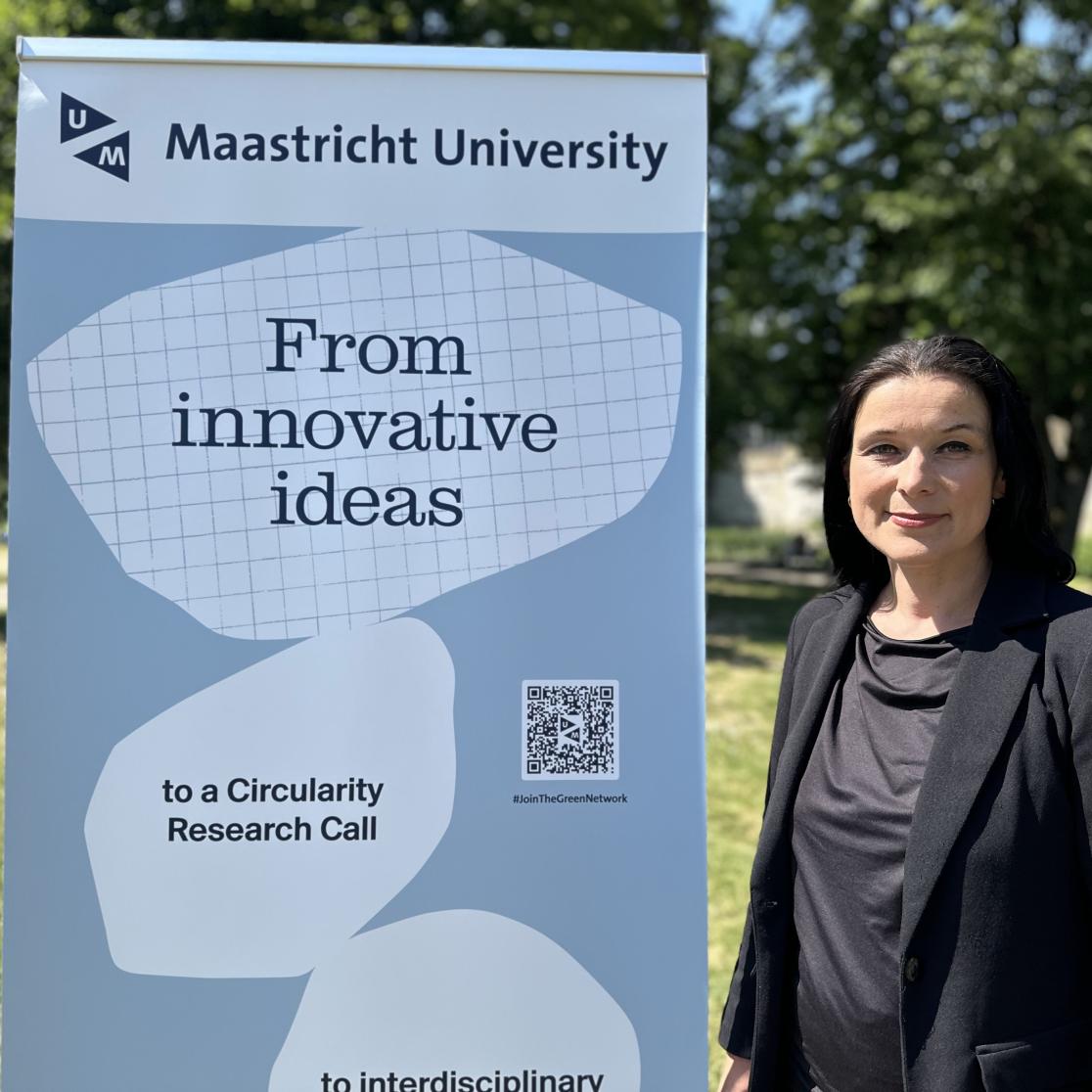From Science to Action: Driving Sustainability at the Regional Level
Meet the Coordinator of the Transition Platform, a key force behind Maastricht University's evolving sustainability mission.
Sustainability isn’t just a buzzword for Nicole Rijkens-Klomp, it’s a mission that has been spanning decades. As the Coordinator of the Transition Platform, she plays a vital role in connecting academia with regional stakeholders to address today’s pressing sustainability challenges.
From studying environmental science to working in sustainability
Her path into sustainability began in the late 1990s, during her studies in environmental sciences. It was there she met professors Jan Rotmans and Marjolein van Asselt, founders of the Maastricht Sustainability Institute, who became mentors and collaborators. “Since then,” she says, “I’ve always worked passionately on sustainability issues.”

Bridging science and society
The Transition Platform is more than a job; it's a vehicle for change. “My role connects science and society. We do research on sustainability transitions, taking future challenges and shocks (high-impact low-probability events) into account” she explains.
Sustainability Roadmap 2030 and teamwork
One of the most exciting developments? The university’s new Sustainability Roadmap. “It’s energizing to be part of a strong team working on a more sustainable university,” she shares. Her focus is clear: building stronger connections with society and embedding sustainability into institutional practice.
What advice does she have for students and staff?
“The time for thinking and debating is over, we must act now. Just look around: climate disasters, resource shortages, biodiversity collapse, geopolitical tensions. The world is in crisis.”
The message is urgent, but hopeful: action is possible, and every member of the university community has a role to play.